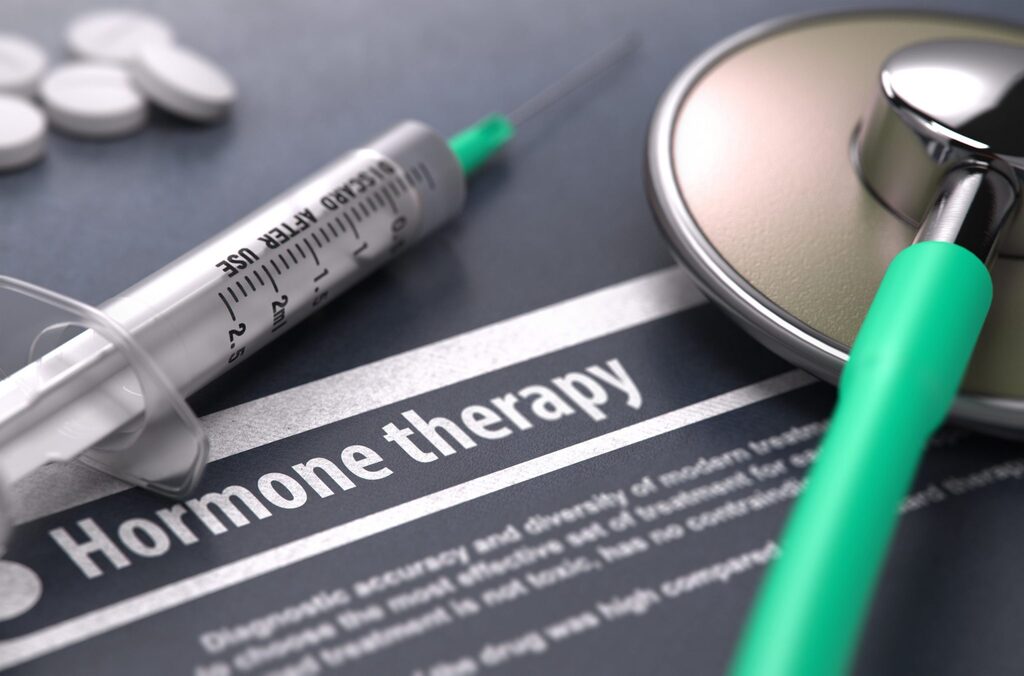Hormone therapy has been a central component in treating various medical conditions, particularly those related to hormonal imbalances. However, misinformation surrounding hormone therapy has flourished, resulting in widespread myths, fears, and confusion that can prevent people from making informed healthcare decisions. This article dives into the origins of hormone therapy misinformation, common misconceptions, the impact of false information on public health, and the importance of evidence-based understanding.
What Is Hormone Therapy?
Hormone therapy (HT), also known as hormone replacement therapy (HRT), involves administering hormones to manage or treat conditions related to hormonal deficiencies or imbalances. HT is frequently used for the following purposes:
- Menopause: Estrogen and progesterone therapies help alleviate menopause symptoms such as hot flashes, night sweats, and mood swings.
- Hypogonadism: This condition, characterized by low levels of sex hormones in men and women, often requires testosterone or estrogen therapy.
- Gender-Affirming Therapy: Transgender individuals may undergo hormone therapy to align their physical characteristics with their gender identity.
- Growth Hormone Therapy: Often used in children with growth disorders or adults with growth hormone deficiencies.
- Thyroid Hormone Therapy: Used to regulate thyroid hormone levels for individuals with hypothyroidism or hyperthyroidism.
These therapies, backed by years of medical research, can provide substantial relief and improve quality of life. Unfortunately, misinformation has clouded public perception, leading to fear and skepticism about hormone therapy’s effectiveness and safety.
Why Is Misinformation About Hormone Therapy So Common?
The rise of digital media has enabled health information to be disseminated widely, often without verification. Factors that contribute to the spread of hormone therapy misinformation include:
- Social Media Amplification: Health-related content, including hormone therapy information, can quickly go viral on social media platforms without fact-checking or medical accuracy.
- Conflicting Research Findings: Studies on hormone therapy have sometimes produced contradictory results, particularly regarding menopause treatments. The famous Women’s Health Initiative (WHI) study of 2002 initially suggested links between HT and cancer, but subsequent research clarified these risks were specific to certain populations. However, public perception remains skewed.
- Profit-Driven Marketing: The wellness and supplement industry often promotes “natural alternatives” to traditional hormone therapies, casting medical HT in a negative light to sell products with questionable effectiveness.
- Personal Testimonies Over Science: Personal stories can have a powerful impact, often leading people to generalize individual experiences, which may not reflect the realities of hormone therapy’s safety and efficacy for the general population.
- Lack of Accessible Medical Guidance: Medical jargon and complex clinical studies can make it difficult for the general public to understand the full scope of hormone therapy. Consequently, people turn to simplified — but often misleading — sources.
Common Myths and Misconceptions About Hormone Therapy
To separate fact from fiction, let’s explore some prevalent myths about hormone therapy and the realities behind them:
1. Myth: Hormone Therapy Causes Cancer
- Reality: The belief that hormone therapy directly causes cancer is one of the most pervasive and harmful myths. While certain types of hormone therapy, particularly combined estrogen-progesterone therapies in menopausal women, have been associated with an increased risk of breast cancer in specific cases, these risks are context-dependent. Current research indicates that HT, particularly when individualized, can be safely administered without significantly raising cancer risk.
2. Myth: Hormone Therapy Is Only for Women
- Reality: Although often associated with women undergoing menopause, hormone therapy is also widely used for men, especially those experiencing symptoms of low testosterone or undergoing gender-affirming treatments. Testosterone therapy in men with low levels can improve bone density, muscle strength, and quality of life.
3. Myth: “Natural” Supplements Are Safer Than Hormone Therapy
- Reality: Supplements marketed as “natural” alternatives to hormone therapy may lack scientific support, be ineffective, or even pose risks due to unregulated ingredients. Unlike HT, which is rigorously studied, supplements do not undergo the same FDA approval process, making their safety and efficacy questionable.
4. Myth: Hormone Therapy Causes Severe Side Effects for Everyone
- Reality: Many people undergoing HT experience minimal to no side effects, especially when treatments are tailored to individual needs. Side effects such as bloating, mood changes, or headaches may occur initially but are generally manageable. A healthcare provider can adjust dosages or types of hormones to reduce any adverse effects.
5. Myth: HT Can Reverse Aging
- Reality: While hormone therapy can alleviate some age-related symptoms by balancing hormones, it is not an anti-aging cure. HT does not stop the aging process but rather helps manage symptoms related to hormonal changes.
6. Myth: Hormone Therapy Isn’t Necessary for Menopause Management
- Reality: Some people believe that menopausal symptoms are natural and should not be medically managed. However, menopause symptoms can be severe and significantly impact quality of life. HT can help manage symptoms like hot flashes, osteoporosis risk, and mood instability, improving long-term health.
The Impact of Hormone Therapy Misinformation on Public Health
The spread of misinformation about hormone therapy has substantial consequences:
- Delays in Treatment: Fear induced by misinformation can discourage individuals from seeking timely hormone therapy, exacerbating symptoms and prolonging suffering.
- Reliance on Unproven Alternatives: Many people turn to alternative treatments that lack scientific support, which may be ineffective or even harmful. These alternatives can lead individuals to spend money on ineffective treatments and delay medically beneficial interventions.
- Decreased Trust in Medical Professionals: Misinformation fuels mistrust toward healthcare providers and medical advice. Patients exposed to unfounded claims may doubt doctors’ recommendations, negatively impacting their care.
- Increased Healthcare Costs: Untreated hormonal imbalances can lead to complications such as osteoporosis, heart disease, and mental health issues, ultimately increasing healthcare costs for individuals and society.
- Marginalization of Transgender Healthcare: Misinformation also affects gender-affirming hormone therapy, leading to stigmatization and reduced access to medically necessary care for transgender individuals.
How to Identify Reliable Information on Hormone Therapy
Finding trustworthy information on hormone therapy is crucial for making informed decisions. Here are tips for evaluating sources:
- Look for Peer-Reviewed Studies: Research published in reputable medical journals, such as The Journal of the American Medical Association (JAMA) or The Lancet, provides well-supported findings that are reviewed by experts in the field.
- Consult Established Health Organizations: Resources from the American Medical Association (AMA), Endocrine Society, or Mayo Clinic provide guidelines and information backed by evidence.
- Avoid Clickbait Headlines: Sensationalized articles often prioritize engagement over accuracy. Stick to resources that prioritize a balanced, evidence-based approach.
- Seek Advice from Medical Professionals: Consulting with healthcare providers allows individuals to get personalized, accurate information. Endocrinologists, gynecologists, or general practitioners specializing in hormone therapy can provide the most up-to-date insights.
- Cross-Check Information: Verify information across multiple credible sources to ensure that you are getting an accurate, well-rounded understanding.
Current Guidelines and Safe Practices for Hormone Therapy
Current clinical guidelines emphasize a personalized approach to hormone therapy, with careful assessment of individual needs and risk factors. Here are some best practices for safe and effective hormone therapy:
- Individualized Treatment Plans: A “one-size-fits-all” approach is ineffective; doctors create tailored plans based on patient history, age, and medical conditions.
- Regular Monitoring: Ongoing check-ups allow doctors to adjust therapy as needed, ensuring the most beneficial and safe outcomes.
- Short-Term Use When Possible: In cases where risk factors are present, doctors may advise shorter-term use to limit potential risks while providing symptom relief.
- Use of Bioidentical Hormones: Bioidentical hormones, which are chemically identical to the hormones produced by the body, may be used for certain individuals to achieve a more natural response.
- Lifestyle Modifications: Incorporating healthy habits, such as balanced nutrition, regular exercise, and stress management, can enhance the effectiveness of hormone therapy and improve overall health.
Moving Forward: Combatting Hormone Therapy Misinformation
Combatting misinformation about hormone therapy requires collaborative efforts among medical professionals, policymakers, and digital media platforms. Here are some approaches to addressing misinformation:
- Improving Public Health Communication: Health agencies and professionals should strive to communicate hormone therapy information in accessible language, avoiding medical jargon to reach a broader audience.
- Educational Campaigns: Public health campaigns can be instrumental in clarifying common misconceptions and promoting evidence-based information on hormone therapy.
- Social Media Monitoring: Platforms can work with health organizations to flag false health information, promote verified resources, and limit the spread of misleading claims.
- Encouraging Critical Thinking: Educating the public on critical thinking skills can help individuals better assess online health information and reduce their vulnerability to misinformation.
Conclusion
Misinformation about hormone therapy is a complex issue with significant health consequences. From misinterpreted studies to profit-driven alternative solutions, misinformation creates a barrier for people in need of safe, effective treatment. Understanding hormone therapy through evidence-based resources and medical guidance is crucial for improving health outcomes, building trust in healthcare providers, and supporting informed decision-making. By promoting accurate information and dispelling myths, we can pave the way for more effective and accessible hormone therapy for everyone who needs it.




